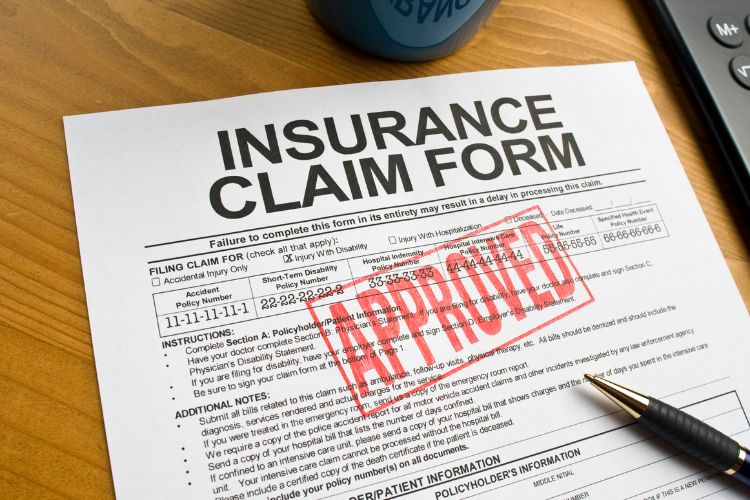Owning an investment property is an excellent move if you want to generate passive income, but it comes with its share of responsibilities to ensure a stable financial situation.
For example, insurance is a crucial safeguard for your precious asset, but it comes at an additional cost. That’s why you might be tempted to avoid opting for multiple insurance policies.
As one of the top property management companies in Brisbane, we often receive questions regarding landlord insurance and whether homeowners need it if they already have building insurance.
In today’s guide, we’ll help you understand the difference between these two policies and whether it’s worth it to opt for landlord insurance. Let’s dive right in!
What Exactly Is Landlord Insurance?
Landlord insurance is a unique type of insurance policy specifically designed to safeguard your property, whether commercial or residential, against risks associated with renting it out.
Many people confuse landlord insurance with building insurance because they’re both concerned with the owned property. However, they’re not the same thing.
Building insurance is designed to cover the structural integrity of the property as well as its permanent fixtures.
On the other hand, landlord insurance goes beyond protecting the bricks and mortar, as it offers financial security for a variety of potential pitfalls that could occur during the leasing period.
What Does Landlord Insurance Cover?

Landlord insurance covers a wide range of risks. However, the specifics of coverage can vary from one landlord’s insurance provider to another.
Other factors may also impact the level of coverage you get with a policy, including the status of the rental property and whether you opt for optional extras and additional protection.
That being said, here’s a brief overview of the common aspects and insured events that most insurance companies would typically cover in their policies.
Essential Covers
These include the fundamental coverage options that most landlord insurance policies out there would include
- Loss of Rent: Protects you from lost rental income if the property becomes temporarily uninhabitable due to an insured event, allowing you to maintain your mortgage payments and other legal expenses.
- Damage Caused by Tenant: Covers the damage caused during the tenant’s stay in the property. This typically includes accidental and malicious damage, although some providers may add malicious damage as an add-on.
- Landlord Legal Liability Cover: Provides financial backing for legal costs if someone gets injured on the property (public liability cover). It also takes care of the expenses if the landlord faces legal disputes with tenants.
Optional or Additional Covers
Besides the primary features of landlord insurance, some providers offer a variety of extra covers that you pay for separately. For example, many companies offer default insurance as an add-on, which protects you from financial loss if your tenant isn’t able to pay rent.
In some cases, landlord insurance policies also come as a combined insurance policy to cover a variety of aspects. For example, it can also be a part of a grand insurance plan that also includes:
- Building Insurance to cover the damage to the structure of the property from events like fire, natural disasters, escape of liquid,
- Building Contents Insurance for landlords to protect furniture and permanent fixtures from damage due to insured events.
Is Landlord Insurance Necessary If You Already Have Building Insurance?
While you might be tempted to avoid spending more money on extra insurance policies, you should still consider landlord insurance if you already have building insurance, as it likely won’t be enough if you’re renting out your property.
Building insurance indeed protects the physical structure of your investment. Yet, it lacks the vital coverage offered by dedicated landlord insurance for the specific risks associated with rental properties.
In that case, if an insured event affects your property and renders it unavailable or inhabitable, landlord insurance will cover you for lost rental income while repairs are ongoing. On the other hand, building insurance won’t compensate for this critical income gap.
Moreover, accidental or even malicious damage inflicted by tenants is generally covered by landlord insurance, often with separate sub-limits for each, so it gives you extra peace of mind.
This also applies to legal liability cover, which is typically a part of landlord insurance but rarely included in building insurance.
It could also be worth asking your property manager about this. If you’re having trouble finding the right agency, read on for how to select a property management company.
Is Landlord Insurance Required By Law?

Technically speaking, landlord insurance is not a mandatory legal requirement in Australia, so you’re not obligated to get one for your rental property.
That being said, there are still several reasons that make it a highly recommended approach to protect your investment.
For instance, landlord insurance covers potential losses from a variety of events like damage to the property, unpaid rent due to tenant issues, or legal expenses arising from tenant-related claims.
For example, if your tenant stops paying rent, landlord insurance will cover the payments until you evict the tenant from your property.
Additionally, knowing that you’re covered against various risks can provide valuable peace of mind as a landlord, especially if you have other financial obligations that require your attention.
How to Make a Claim for Landlord Insurance
The process of claiming landlord insurance will usually be explained in detail by your employer in your contract. However, here’s how it typically goes for most providers:
- Assess the situation and collect all relevant information available about the incident
- Document the incident by recording evidence of the incident
- Make sure that it’s covered by your insurance policy
- Get in touch with your insurance company as soon as possible
- Be ready to provide all the necessary details about the incident, which is where your recorded evidence comes in handy to support your claims.
Note: In the case of an outsourced repairs provider, make sure that you book an appointment for the repairs yourself, if necessary.
Wrap Up
Understanding the fine details of landlord insurance and how they work may seem complex, but it’s a highly recommended step for any landlord who wants to protect their financial interests.
Before applying for landlord insurance, make sure that you get quotes from multiple companies and study their terms carefully to get the best deal for you.

